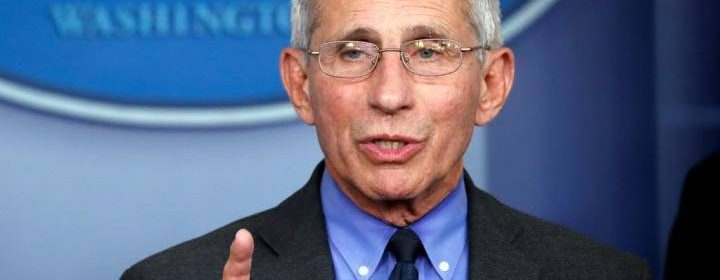Coronavirus: Fauci, other U.S. officials to give Senate testimony by video from quarantine

Nobody planned it this way, but a Senate hearing on reopening workplaces and schools safely is turning into a teaching moment on the fickle nature of the coronavirus outbreak.
Senior health officials scheduled to testify in person before the Health, Education, Labor and Pensions committee on Tuesday will instead appear via video link after going into self-quarantine, following their exposure to a White House staffer who tested positive for COVID-19.
The chairman of the committee, Republican Sen. Lamar Alexander of Tennessee, also put himself in quarantine after an aide tested positive. He’ll participate by video, too.
Even before the gavel drops, the hearing offers two takeaways for the rest of the country, said John Auerbach, president of the nonprofit public health group Trust for America’s Health.
“One thing it tells you is that the virus can have an impact in any workplace setting or any community setting,” said Auerbach. “All businesses will find it very challenging to ensure safety when there are cases.”
Another lesson is that the public officials involved are taking the virus seriously by not appearing in person. “They are following the guidelines that they are recommending to others,” said Auerbach. “There is not a double standard.”
Appearing by video link before the committee will be Dr. Anthony Fauci of the National Institutes of Health, considered the government’s leading authority on infectious diseases, and FDA Commissioner Dr. Stephen Hahn and Dr. Robert Redfield, head of the Centers for Disease Control and Prevention. The three are in self-quarantine. They will be joined by Adm. Brett Giroir, the coronavirus “testing czar” at the Department of Health and Human Services.
[ Sign up for our Health IQ newsletter for the latest coronavirus updates ]
The main questions for the administration experts revolve around the “Three T’s,” or testing, tracing and treatment.
Without widespread testing, state and local officials will be basing decisions to reopen businesses and schools on incomplete data with blind spots lurking. Without the ability to do the painstaking work of tracing the contacts of people infected, unwitting transmission will continue. Without effective treatments, hospitals in a given community could be overwhelmed in a COVID-19 rebound. Ultimately, the goal is a vaccine that would offer widespread protection.
“President Trump is trying to ignore the facts, and ignore the experts who have been clear we are nowhere close to where we need to be to reopen safely,” she said in a statement. Murray will participate via video, but some senators are expected to attend in person.
Alexander is more nuanced about the nation’s readiness. He suggests there’s enough testing to move to reopen the economy, but worries that there won’t be enough to sustain a return to normality.
“It’s enough to do what we need to do today to reopen,” he said on NBC’s “Meet The Press” on Sunday. “But it’s not enough, for example, when 35,000 kids and faculty show up on the University of Tennessee campus in August.”
With more types of tests on the market from different manufacturers and providers, testing is an area that’s become particularly difficult for lay people to navigate.
Until now there has been only one kind of test to detect active infection. Called a PCR test, it detects the genetic material of the virus, and is still considered the most accurate.
Last weekend the FDA approved the first “antigen” test, which looks for protein traces of the virus instead, much like rapid tests for flu or strep throat. Antigen tests aren’t as accurate as PCR tests but promise to be faster and easier to use.
A third kind of test detects past infection, by spotting antibodies in people’s blood. But it’s not yet clear if having those antibodies means someone is immune from another bout of COVID-19.
Source: Read Full Article

